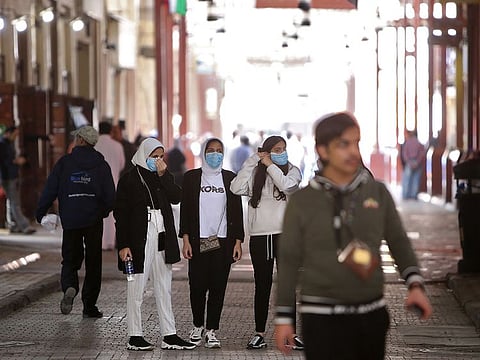Kuwaiti women demand equal housing citizenship rights
Kuwaiti women suffer discrimination in rights of housing welfare, activists say

Abu Dhabi: Kuwaiti women's and political activists have demanded to be granted housing rights and the right of their children to jobs in accordance with the laws and the constitution that guarantee equality of citizens, men and women, Kuwaiti media reported.
Activists focused on the fact that housing rights should be granted to Kuwaiti women in all categories (married to a foreigner, divorced, single women, widow), demanding the Public Authority for Housing Welfare to provide adequate housing and rent allowances same male citizens.
Alia Al Dulaimi, head of the Kuwaiti Women’s Rights Committee, said we had a meeting with the Minister of Housing Dr. Rana Al Faris and some of the demands of Kuwaiti women married to non-Kuwaitis were discussed. “There is a flagrant discrimination between men and women in Kuwait, even though they are equal legally and constitutionally,’ Al Dulaimi said.
Al Dulaimi added article 29 of the Kuwaiti constitution states,“People are equal in human dignity, and they are equal before the law in public rights and duties, there is no discrimination between them on the grounds of gender, origin, language or religion. However, unfortunately, we note that the state grants housing rights to the male only including plots of lands, housing loans, government houses and housing allowance,” she said.
Al Dulaimi specifically demanded reopening the file of Kuwaiti women who applied for housing since the 1980s, which was shelved by the prime minister. “The Cabinet decision to shelve this crucial dossier is extremely unfair against the right of Kuwaiti women married to a non-Kuwaiti to housing similar to Kuwaiti men,” she said.
Al Dulaimi also demanded full ownership of houses that were granted to Kuwaiti women married to foreigners on lease since the 1970s.
“It is unfair to Kuwaiti women, because the state grants Kuwaiti men the right to own property but the Kuwaiti women are not entitled to own these houses and in the event of their death, the house goes back to the government,” Al Dulaimi said.
The head of the Kuwaiti Women’s Rights Committee said Kuwaiti women married to a non-Kuwaitis do not receive a rent allowance of 150 dinars, just like the male citizens.
“Decree 2/2011 granted Kuwaiti women married to non-Kuwaiti women the right to low-cost housing but the decree has not seen the light yet. Also, divorcees and widows are granted a credit bank loan of 70,000 dinars, but most Kuwaiti women were unable to obtain it, especially in light of the growing real estate prices,” she said.
For his part, political activist Faisal Al Harbi affirmed that the issue of Kuwaiti women’s rights to housing requires radical solutions once and for all.
Al Harbi added laws clearly and explicitly provides for naturalisation of Kuwaiti children born to Kuwaiti women married to foreigners in the event of the death of the father or the irrevocable divorce after a period of time, but this unfortunately has not been enforced for many years.
“The issues Kuwaiti women go through are more than enough to undermine households, and this calls for a serious decisions to grant Kuwaiti women and their families the peace of mind they deserve.” Al Harbi said.
Sign up for the Daily Briefing
Get the latest news and updates straight to your inbox



